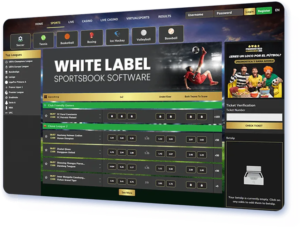Zero-Knowledge Rollups + DApps: Privacy-Focused Development in 2025
As blockchain technology matures in 2025, privacy is no longer a luxury — it is a requirement. With increasing regulatory pressure, corporate adoption, and user demand for digital autonomy, the decentralized ecosystem is moving rapidly toward privacy-first infrastructure. At the heart of this shift are zero-knowledge rollups (ZK-rollups) — a powerful scaling and privacy-preserving solution that is now redefining how decentralized applications (dApps) are built and deployed.
ZK-rollups enable blockchain networks to process transactions off-chain while ensuring that the correctness of those transactions can be cryptographically verified on-chain without revealing underlying data. This is a game-changer for dApps handling sensitive user information, financial transactions, and identity credentials.
In this in-depth article, we explore how ZK-rollups and privacy-enhanced smart contracts are transforming dApp architecture in 2025. We also break down how a professional dapp development company can help projects tap into the privacy layer using robust dapp development services, covering everything from ZK circuits to frontend integration.
The Rise of Zero-Knowledge Rollups in Web3 Infrastructure
ZK-rollups have emerged as a leading scalability solution for Ethereum and other EVM-compatible chains. Unlike optimistic rollups that rely on challenge periods and fraud proofs, ZK-rollups use zero-knowledge proofs — cryptographic methods that allow data validation without revealing the data itself. This means that entire batches of transactions can be processed off-chain, proven valid, and finalized on-chain with minimal gas and maximum privacy.
In 2025, ZK-rollup ecosystems like zkSync, Scroll, Polygon zkEVM, Starknet, and Linea are gaining widespread adoption. Their appeal lies in their ability to offer fast finality, low fees, and customizable privacy guarantees — which are essential for real-world use cases like DeFi, identity management, supply chain, and enterprise compliance.
For developers and founders looking to future-proof their products, building on ZK-rollup infrastructure is quickly becoming the norm. This is where working with a specialized dapp development company matters most — one that offers deep experience with ZK tooling, cryptographic logic, and scalable deployment through tailored dapp development services.
Why Privacy is a Core Requirement for dApps in 2025
Web3 started as a movement for transparency and decentralization. But transparency without discretion can be dangerous — especially for financial transactions, identity data, healthcare records, or business logic that needs to remain confidential.
Users today demand not just ownership of their data, but control over its visibility. They want to choose when and how their data is shared. This has given rise to privacy-centric dApp design, where user data is encrypted, verified, and selectively revealed via zero-knowledge proofs.
Whether it’s an anonymous voting mechanism, private token transfers, confidential DAOs, or self-sovereign identity frameworks — dApps built in 2025 are expected to integrate ZK-based privacy layers by default. A trusted dapp development company will now consider privacy not as an addon, but as a design principle woven through all layers of its dapp development services — from smart contracts to user experience.
How ZK-Rollups Work in DApp Architecture
At a high level, ZK-rollups allow dApps to move intensive computations off-chain while preserving data integrity. Here’s how this architecture typically plays out in modern dApps:
The user interacts with the dApp interface to initiate an action. Instead of executing the transaction directly on Layer-1 Ethereum, the dApp sends the data to a ZK-rollup coordinator. The coordinator batches many transactions and processes them off-chain. A zero-knowledge proof (typically a SNARK or STARK) is generated to mathematically confirm the validity of all batched operations. This proof is submitted on-chain to the rollup contract, which verifies its correctness without knowing any sensitive details. The on-chain state is updated accordingly, and users see near-instant finality with minimal gas cost.
The advantage of this model is that dApps can provide users with a scalable, affordable, and private experience — one that mirrors traditional apps in performance while preserving the integrity of a decentralized backend.
A professional dapp development company brings this architecture to life by crafting ZK-aware smart contracts, integrating with the right rollup ecosystem, and optimizing the frontend to handle encrypted inputs, proof generation, and real-time feedback.
ZK Use Cases in Modern DApps: From Finance to Governance
The impact of zero-knowledge rollups is being felt across multiple verticals. In DeFi, ZK-rollups enable private token transfers, confidential swaps, and hidden wallet balances — all while maintaining compliance and auditability. This is critical for institutional adoption, where privacy must be balanced with traceability.
In DAOs, ZK proofs are used for anonymous voting, proof-of-contribution, and reputation systems that protect members from retaliation while still rewarding participation. DAO tools now include features like shielded proposals, vote shuffling, and off-chain computation for scalability.
In identity systems, projects are using ZK credentials that allow users to prove claims (like age, nationality, or certification) without revealing personal information. This is especially relevant in sectors like healthcare, KYC/AML compliance, and education, where privacy is essential.
A future-ready dapp development company specializes in building such modular applications using zero-knowledge proof systems like Circom, Noir, or Cairo. Their dapp development services are tailored to implement use-case-specific privacy logic with intuitive interfaces that abstract the cryptographic complexity away from the user.
Frontend Considerations for Privacy-Centric DApps
Building ZK-enabled dApps isn’t just about the backend logic. Frontend design is critical for user experience — especially when working with encrypted inputs, delayed transactions, or proof generation delays.
In 2025, dApps with privacy layers include:
Progressive input forms that guide users through zero-knowledge submission
Custom wallet integrations for generating and storing ZK proofs locally
Proof status indicators and transparent transaction finality feedback
Lightweight ZK-compatible libraries embedded within frontend apps
Encrypted messaging or signaling between wallets and smart contracts
These user experiences require thoughtful UX/UI design, secure browser storage, and async handling of proof verification. A skilled dapp development company will include frontend ZK support as part of its dapp development services, ensuring performance, usability, and security at every step.
Interoperability: ZK-Rollups Across Chains
One major benefit of ZK-rollups is their potential for cross-chain compatibility. As more networks adopt zkEVM standards, it becomes easier to move assets and identities between rollup chains without sacrificing privacy.
In 2025, multichain ZK ecosystems are emerging where users can bridge assets from zkSync to Starknet to Polygon zkEVM — all while preserving proof validity and data confidentiality. This gives dApps the ability to serve users across chains and regions while complying with localized privacy norms.
A knowledgeable dapp development company will offer dapp development services that incorporate multichain deployment, ZK-bridge integration, and data consistency across rollup environments — helping your application scale globally without compromising privacy.
ZK Tooling Landscape in 2025
Developers building dApps on ZK-rollups today have access to an increasingly powerful and accessible toolset. Frameworks like Circom and SnarkJS allow the definition and verification of custom circuits. Cairo and Starknet make STARK-based development more modular. Noir by Aztec is gaining popularity for its Rust-like syntax and privacy-by-default philosophy.
Other tools include:
zkSync SDKs and ZKPorter for hybrid storage
zkBob for private payments
Semaphore and RLN for anonymous reputation
zkKYC for compliant identity flows
Proof Marketplaces for outsourcing proof computation
Partnering with a forward-looking dapp development company ensures that your development team chooses the right tools for your privacy goals. Their dapp development services often include circuit design, proof optimization, performance tuning, and secure infrastructure deployment for ZK workflows.
Challenges in ZK dApp Development — And How to Overcome Them
Despite the progress, building ZK-powered dApps comes with unique challenges. Proof generation is computationally expensive, especially on mobile. Circuit design requires a different development mindset than typical Solidity-based workflows. Debugging ZK circuits can be complex, and user education remains a bottleneck for adoption.
But these challenges are being actively addressed. Off-chain compute services now handle heavy ZK proof generation, ZK-friendly wallets simplify authentication, and toolkits like zkAppCLI are making circuit writing more accessible.
A capable dapp development company helps you navigate these challenges by offering optimized dapp development services, building hybrid workflows that balance privacy and performance, and incorporating user onboarding flows that explain ZK benefits in plain language.
The Business Case for ZK-Powered DApps
In 2025, privacy is no longer just a technical feature — it’s a business differentiator. Users are choosing platforms that give them control over their data. Enterprises are more likely to integrate with protocols that offer confidential transactions and compliance-ready ZK architecture.
Privacy-centric dApps are also more likely to withstand regulatory scrutiny. With zero-knowledge proofs, developers can build systems that comply with laws like GDPR, MiCA, and HIPAA — without giving up decentralization or user control.
Working with a dapp development company that understands these regulatory and user-experience trade-offs is essential. Their dapp development services ensure that your application meets both technical and legal standards while maintaining competitive differentiation in a saturated market.
Conclusion: Privacy is the Future of Decentralization
Zero-knowledge rollups are not just a scalability fix — they represent the next evolution of decentralized architecture. In 2025, dApps that do not offer users privacy, control, and security will struggle to gain adoption or sustain trust.
To lead the next wave of Web3 innovation, your application must embrace privacy-first design. That means building with zero-knowledge rollups, designing secure user flows, and deploying across scalable, compliant, and future-proof infrastructure.
A specialized dapp development company is your partner in that journey — offering full-stack
dapp development services that include ZK-circuit design, frontend privacy UX, cross-rollup interoperability, and continuous security support.
In the age of AI, surveillance, and centralized overreach, dApps built with ZK principles aren’t just desirable — they are inevitable.













